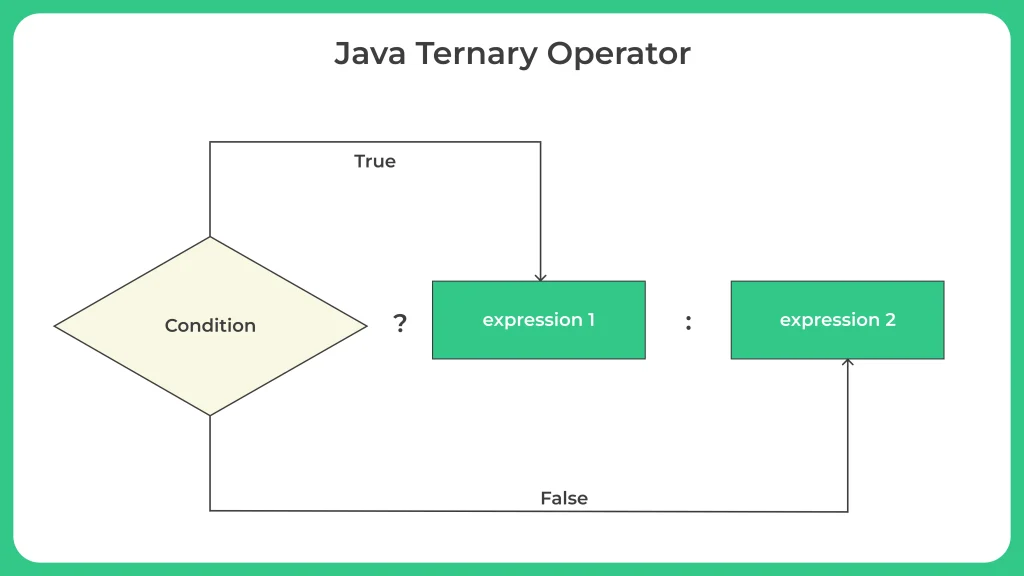Java Ternary Operator

Ternary Operator In Java?
The Java Ternary Operator is a shorthand way to write an if-else statement in a single line.
It takes three operands: a boolean expression, a value to be returned if the boolean expression is true, and a value to be returned if the boolean expression is false.
To understand the more about Java Ternary Operator, Read the Complete Article.
When to use the Ternary Operator?
The ternary operator should be used when you need to assign a value to a variable based on a single condition, and the value assigned to the variable is determined by the outcome of the condition.
It can be useful for simplifying code and reducing the number of lines needed for simple conditional assignments. It should not be used for complex conditions or multiple outcomes, as it can make the code harder to read and understand.

Advantages of Java Ternary Operators
Example 1: Java Program for ternary operator in Java
public class Main {
//TernaryOperatorExample
public static void main(String[] args) {
int num = -5;
String result = (num > 0) ? "positive" : "negative";
System.out.println("The number " + num + " is " + result);
}
}
Output
The number -5 is negative
Example 2: Java Nested Ternary Operator
public class Main {
//NestedTernaryOperatorExample
public static void main(String[] args) {
int num1 = 10;
int num2 = 20;
int num3 = 30;
int max = (num1 > num2) ? ((num1 > num3) ? num1 : num3) : ((num2 > num3) ? num2 : num3);
System.out.println("The maximum of " + num1 + ", " + num2 + " and " + num3 + " is " + max);
}
}
Output
The maximum of 10, 20 and 30 is 30
Prime Course Trailer
Related Banners
Get PrepInsta Prime & get Access to all 200+ courses offered by PrepInsta in One Subscription
Get over 200+ course One Subscription
Courses like AI/ML, Cloud Computing, Ethical Hacking, C, C++, Java, Python, DSA (All Languages), Competitive Coding (All Languages), TCS, Infosys, Wipro, Amazon, DBMS, SQL and others






Login/Signup to comment